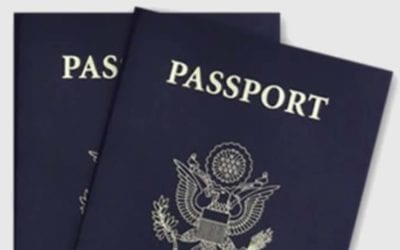Resolving major issues takes time. Sometimes it takes a lot of time. Emerging from the depths of the Great Recession took 547 days. Creating Social Security took 209 days. Ending the Iran hostage crisis took 444 days. The Obamacare debates lasted just over 380 days.
All of those lengthy processes, however, have been dwarfed by a relatively simple pro-consumer move to protect travelers from hidden airline fees that is very slowly slogging its way through the U.S. regulatory bureaucracy.
For the past 880 days consumers have been participating in a rulemaking to require airlines to disclose ancillary fees in channels where they sell their base fares so that complete air transportation prices can be easily compared across airlines. After all this time, the highly anticipated rulemaking from the U.S. DOT still has not been published. The marketplace for commercial airline services has been failing and millions of consumers are being harmed as the government procrastinates.
After a series of delays within DOT, due in part to voluminous submissions from interested parties, this languishing rulemaking is now held up in the Office of Information and Regulatory Affairs (OIRA) in the Office of Management and Budget (OMB). These delays only serve to allow airlines to continue their program of unfair and deceptive pricing and leave passengers at risk for costly surprises.
Accordingly, AirlinePassengers.org, the Association for Airline Passenger Rights, Business Travel Coalition, Consumer Federation of America, Consumer Travel Alliance, Consumers Union, FlyersRights.org, National Consumers League and U.S. PIRG have transmitted a letter to OMB and OIRA urging them to complete their work on the delayed DOT rulemaking. This rulemaking was initiated on April 4, 2011. It has still not been published by DOT for comments.
In combination with eliminating the ability to easily compare the cost of travel across airlines, the airlines are making their ancillary fee structure even more complex. Starting with baggage fees, the airlines have “unbundled“ the airfare, a redefined term that once included baggage, seat reservations, the ability to speak with reservation agents and more. The new airline definition of airfare focuses on minimum service.
In 2008, a major network carrier introduced the first checked-baggage fee and one by one other carriers followed. Since then, airlines have added fees for everything from seat reservations to early boarding and telephone reservations to flight cancellations. These fees and a complex matrix of associated exemptions and exceptions under current rules make it virtually impossible for vacationers and business travelers to compare all-in prices across airlines.
To this date, airlines refuse to disclose dynamic passenger
and flight-specific airline fees that would allow all travelers to view the full spectrum of air transportation prices. When so much of a pricing structure depends on exceptions and exemptions, anything less than full disclosure is deceptive.
It is time that this Enhancing Consumer Protections III rulemaking be published and opened for comments by consumers and all participants in the travel value chain. The withholding of ancillary fee data by the airlines not only harms consumers, but also hinders the ability of airlines’ largest corporate customers to budget for and control their travel spend.
Consumer organizations have worked carefully and steadfastly in good faith through the rulemaking process to redress this airfare price-comparison problem. Delay after delay damages confidence in our government and its commitment to consumer protections.
This OMB delay needs to end. After five years of consumer deception in the sale of air transportation services, it’s time to release this long overdue rulemaking. The tens of millions of airline consumers that signatories to the OMB letter represent deserve better from both the airlines and the regulatory bodies that are tasked with promulgating and enforcing consumer protection rules.

Charlie Leocha is the President of Travelers United. He has been working in Washington, DC, for the past 14 years with Congress, the Department of Transportation, and industry stakeholders on travel issues. He was the first consumer representative to the Advisory Committee for Aviation Consumer Protections appointed by the Secretary of Transportation from 2012 through 2018.



